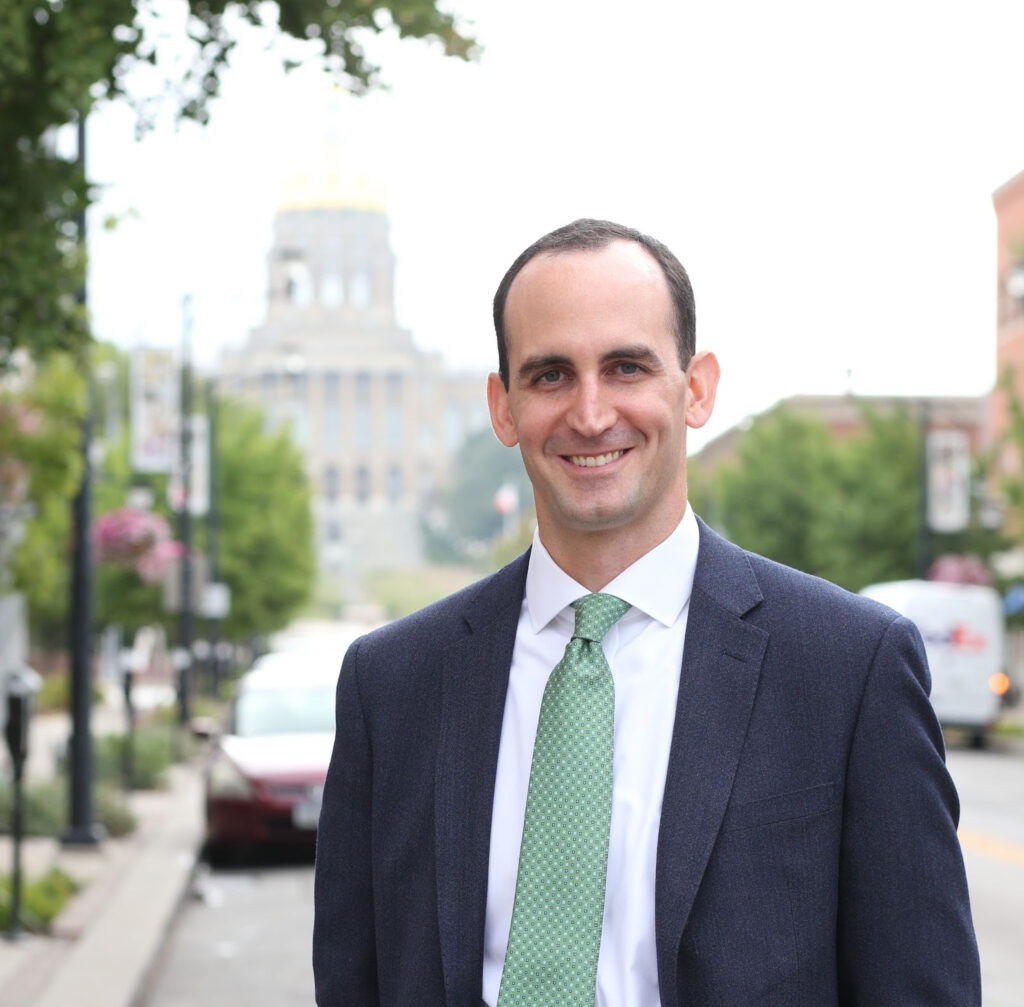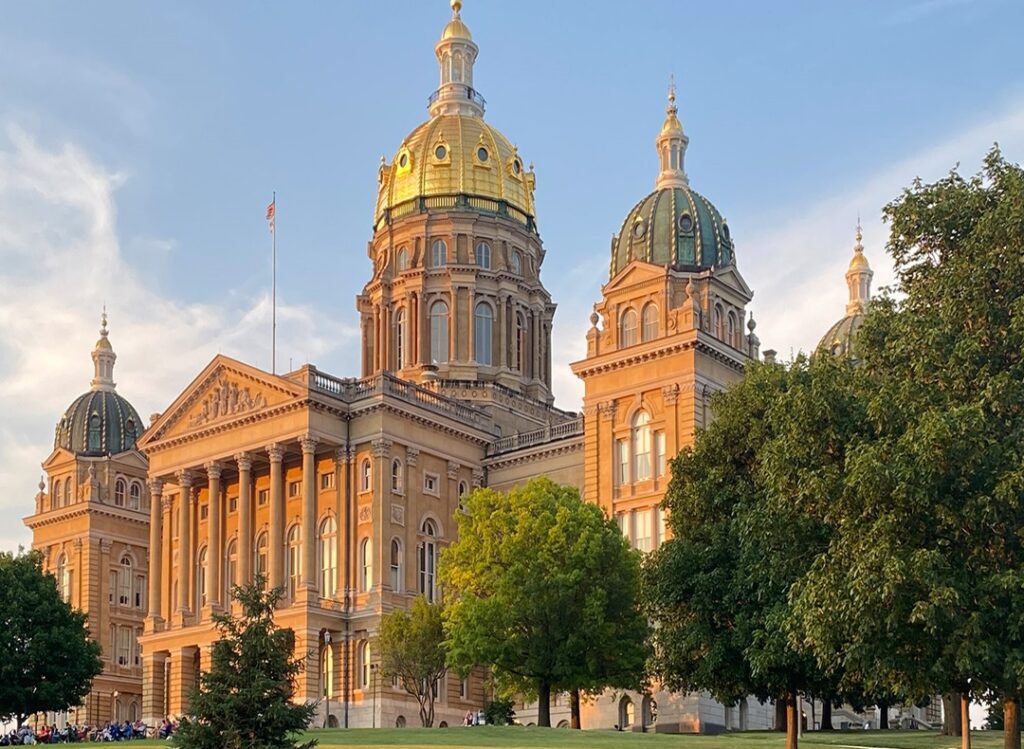Business groups focus on increasing Iowa’s workforce during 2024 session

Michael Crumb Jan 9, 2024 | 6:00 am
4 min read time
1,037 wordsBusiness Record Insider, Government Policy and LawWhen the 2024 legislative session opened this week, groups representing Iowa’s business community came to the table prepared to focus on issues that will continue to make Iowa more competitive and make the state a more attractive place to live and play.
Lawmakers convened for this year’s session on Monday, and business groups made it clear they wanted them to focus on the state’s workforce — and ways to build it — during the session.
Near the top of that list is continued efforts to make the state’s tax policy more competitive. That could include accelerating the timeline that was established in 2022 for reducing the state’s individual income tax to 3.9% over five years.

“I think there’s absolutely going to be a conversation on increasing our competitiveness from a tax policy standpoint,” said Joe Murphy, president of the Iowa Business Council, in comments made before the session started. “The governor, the Legislature have been talking about increasing their efforts to make Iowa more competitive, and while we’ve taken really great steps over the past several years, there’s an opportunity given the strength of Iowa’s fiscal capacity to particularly accelerate some of those tax cuts.”
According to Murphy, addressing Iowa’s tax policy is a growth strategy to help attract new workers to the state and retain those who are already here.
“Iowa continues to have a workforce shortage, [and] we need to bring in new Iowans from other parts of the country and have them live here, and one of the things we’ve traditionally talked about is our low cost of living. But the fact that we can then also talk about our taxes are going down and will be simpler, will be fairer, will be a really important point to offer prospective Iowans, and certainly something our members are trumpeting as they’re talking to individuals,” he said.
Other issues that groups will focus on this session include child care, housing and work-based learning.

Andrea Woodard, senior vice president of government relations and public policy for the Greater Des Moines Partnership, said there are several child care bills leftover from last year’s session that the Partnership will be watching this year.
One of them would provide property tax relief for child care providers that would potentially lower costs for families and increase wages for employees. Other bills address income tax exemptions for child care workers, and expand the number of allowed paid absences covered by child care assistance.
Other priorities for the Partnership are further investment in the workforce housing tax credit program and in Destination Iowa, a program designed to enhance the quality of life in Iowa communities to attract new residents and visitors to the state.
There will also be attention paid to bills that invest in work-based learning opportunities, with a focus on “high-need industries,” rather than on a particular groups of students.
“I think the focus we’ll hear about is more industry specific,” Woodard said.
Each of the Partnership’s priorities revolves around the goal of retaining and attracting talent to Iowa, she said.
“Our businesses need talent, and we are welcoming all talent to the region with open arms and we have language in our mission of being a welcoming community to business and talent,” Woodard said.
Under its priorities, the United Way of Central Iowa has also listed child care workforce, housing and food security as its priorities for the 2024 session.
The agency specifically will advocate for further investment in the Double Up Food Bucks program, which helps increase access to healthy, nutritious food for SNAP recipients.

“We consider this solution a win for all involved,” said Dave Stone, advocacy officer for the United Way of Central Iowa. “Families are allowed to stretch food dollars on healthy food items, our economy will benefit from Double Up Food Bucks only being spent in Iowa-owned grocery stores and markets, and Iowa produce farmers will receive direct benefits from an increase in demand and new customers.”
The Technology Association of Iowa, which has a legislative reception scheduled for Jan. 24, has listed its priorities for the current session as artificial intelligence and fostering safe and ethical AI practices and providing education on applications; cybersecurity and elevating awareness to cyber threats and incentivizing cybersecurity practices; enhancing data privacy; increasing high-speed internet connectivity, and supporting efforts to increase the state’s workforce and business growth.
The Partnership and the Iowa Business Council also have listed funding of the MEGA [Major Economic Growth Attraction] program, which is designed to provide incentives to expand or attract new, substantial companies to Iowa.
A bill was introduced in 2023 but failed to gain traction before the session ended.
It focuses on companies that would primarily be engaged in research and development, bioscience or advanced manufacturing. It would require an investment of at least $1 billion by the company and the commitment to create high-quality, high-paying jobs.
Murphy said the program will help make the state’s economy more forward-looking and make Iowa more competitive.
“There are many other states that have programs like this. Iowa does not, and as a result of that, we’re at a competitive disadvantage at the moment,” Murphy said.
The Iowa Association of Business and Industries’ legislative agenda for 2024 also focuses on tax policy and workforce development. It also prioritizes regulatory reform, which includes:
- Streamlining permitting requirements and processes, in particular environmental, reducing cost and time for businesses and the state.
- Modernizing notification requirements for employment drug testing.
- Reviewing and eliminating policies and regulations that hinder small business expansion.

JD Davis, vice president of public policy for ABI, said the organization is optimistic that lawmakers will continue to make headway on issues that are important to the state’s business community during the 2024 session.
“We are confident that at the conclusion of the 2024 Session, ABI’s priorities regarding workforce, taxes and regulatory reform will be addressed in a meaningful way, enhancing Iowa’s business climate and bolstering the competitiveness of our members,” Davis said.
The 2024 legislative session is scheduled to end on April 16, the day that per diem expenses paid to lawmakers expires. Look for ongoing coverage of the Legislature throughout the session in the Business Record and at www.businessrecord.com.

Michael Crumb
Michael Crumb is a senior staff writer at Business Record. He covers real estate and development and transportation.










